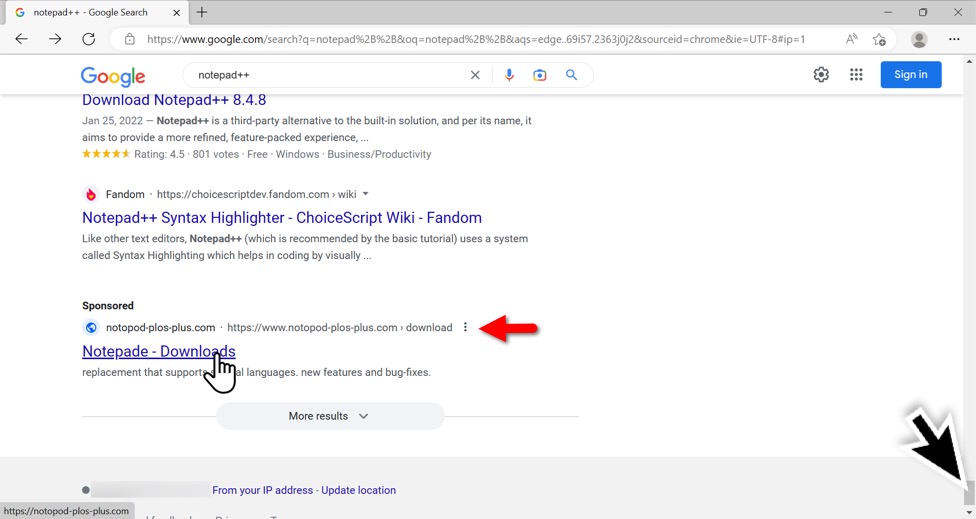From isc.sans.edu

Google ads are a common vector for malware distribution. Do a Google search for any popular free software download. Review any search results marked “Ad” or “Sponsored,” then check the link to see if anything is unusual.
From isc.sans.edu

Google ads are a common vector for malware distribution. Do a Google search for any popular free software download. Review any search results marked “Ad” or “Sponsored,” then check the link to see if anything is unusual.